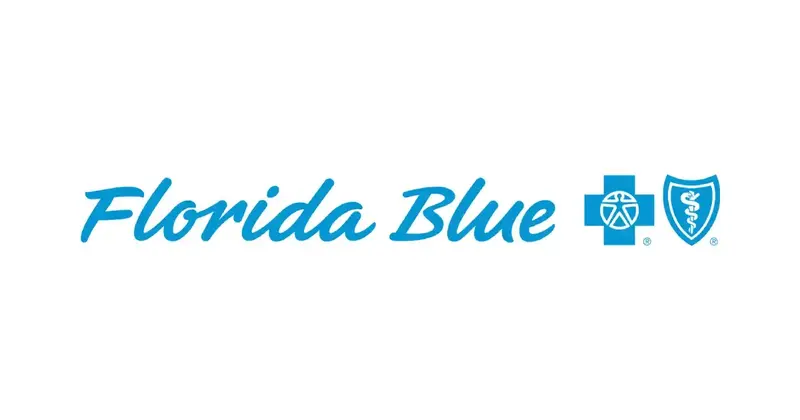Explore the transformative possibilities of Transcranial Magnetic Stimulation (TMS) treatment with your Florida Blue Cross Blue Shield (BCBS) coverage. Learn more about this innovative therapy and to what extent your health insurance provider covers this non-invasive brain stimulation for various mental health conditions. Learn about the comprehensive support Florida Blue and The Sylvia Brafman Mental Health Center provides.

Florida Blue Cross Blue Shield TMS Treatment and Therapy
What is TMS?
Transcranial Magnetic Stimulation (TMS) is a cutting-edge therapeutic technique involving the application of magnetic fields to stimulate specific brain regions. It’s used in the treatment of specific mental health conditions, notably major depressive disorder (MDD). Unlike traditional therapies, TMS is non-invasive, making it a well-tolerated option for individuals who may not respond to other forms of treatment or medication.
During TMS therapy sessions, a coil is placed on the scalp, delivering magnetic pulse stimulation to the targeted brain areas associated with mood regulation. This process modulates neural activity and promotes positive changes in brain function. Theta Burst Stimulation (TBS) is a pattern of neurostimulation techniques thought to induce alterations in cortical excitability and synaptic plasticity.
TMS is generally considered a safe, well-tolerated therapeutic intervention, but it may have some side effects like any medical procedure. Common TMS side effects are typically mild, including scalp discomfort or a mild headache at the treatment site during or after TMS therapy sessions. These effects tend to diminish as the treatment progresses, ensuring TMS efficacy and safety.
TMS has shown promising results in alleviating symptoms of depression, and research indicates its efficacy in reducing the severity of depressive episodes. As we delve deeper, you’ll discover specific statistics highlighting success rates, TMS side effects, and the overall impact of TMS as a transformative mental health treatment covered by Florida Blue Cross Blue Shield.1
Is TMS Therapy Evidence-Based?
While TMS may not be the first line of treatment for many conditions, this neuromodulation therapy is firmly grounded in a substantial body of scientific evidence, particularly in its effectiveness for treating major depressive disorder (MDD). Through TMS clinical trials, TMS has demonstrated its ability to alleviate depressive symptoms, especially for those who’ve not responded to conventional antidepressant medications.
The decision to pursue TMS treatment for depression or other mental health disorders is typically made collaboratively with healthcare professionals, taking into consideration your medical history and the severity of your condition. Below, we’ll continue to shed light on the specific conditions where TMS has a solid evidence base.

Who is Florida Blue?
The Blue Cross Blue Shield Association (BCBSA) is a collection of independent health insurance companies that assist people throughout the United States. One of its prominent subsidiaries is Florida Blue, which was founded in 1945. Florida Blue is a health insurance provider that offers comprehensive health coverage options and preventive care benefits to residents of Florida.
With a solid commitment to improving the health and well-being of the community, Florida Blue remains a vital player in the healthcare landscape. It has become the country’s largest single-state provider of individual marketplace plans.3

At The Sylvia Brafman Mental Health Treatment Center in Fort Lauderdale, Florida, our team of dedicated professionals is ready to guide you. We offer IOP and a variety of treatments programs, each uniquely designed to meet your needs. So don’t wait, reach out to us today! Either give us a call or fill up the form below to request a callback.
"*" indicates required fields

Does Florida Blue Cross Blue Shield Cover Transcranial Magnetic Stimulation?
Florida Blue provides coverage for Transcranial Magnetic Stimulation (TMS) when medically necessary. As a forward-thinking health insurance provider, Florida Blue recognizes the significance of innovative treatments for mental health conditions. Individuals seeking TMS therapy for disorders such as major depressive disorder can benefit from the coverage and support offered by Florida Blue, facilitating access to this transformative treatment option.7
To learn more about TMS therapy and its benefits, call 877-958-9212. Our helpful patient advocates can provide details on your Florida Blue Insurance plan, including copayments, deductibles, limitations, exclusions, and more.
Does Florida Blue Cross Blue Shield Cover TMS Therapy for Depression Treatment?
Yes, Florida Blue covers TMS therapy as part of its comprehensive approach to mental health coverage. TMS is a covered therapeutic option under Florida Blue for medically necessary circumstances. With a commitment to supporting mental health, Florida Blue helps individuals on their journey to well-being and recovery by including TMS therapy in their coverage for major depressive disorder (MDD).
It is essential to review your policy documents to understand coverage details fully. If you need guidance or assistance, you can call 877-958-9212. Seeking professional help is a crucial and admirable first step. Understanding your mental health insurance coverage ensures that you have access to the necessary resources for effective depression treatment.

Florida Blue May cover TMS Therapy for The Following Conditions
Florida Blue may cover TMS therapy for specific conditions, offering an alternative for individuals unresponsive to standard, first-line treatments. The “maybe” reflects the individualized approach in considering TMS, acknowledging that it may not always be an appropriate first choice. The following will elaborate on conditions where TMS is potentially covered, highlighting its role in treating an array of diverse conditions.

TMS Centers in Florida That Accept Blue Cross Blue Shield Insurance
Although The Sylvia Brafman Mental Health Center does not provide transcranial magnetic stimulation (TMS), our patient advocates help you incorporate TMS therapy into your treatment plan. TMS involves daily sessions for a few weeks, is well-tolerated, and doesn’t require anesthesia. This makes it an excellent option if you prefer not to use antidepressant medications or undergo invasive procedures.
With decades of collective expertise, our skilled medical and clinical teams have effectively aided thousands in navigating and conquering mental health hurdles. Additionally, there’s a possibility that we accept your Florida Blue Insurance policy, increasing accessibility to our services for those requiring assistance. For further information about our offerings, please contact us at 877-958-9212 or visit our physical location as detailed below:
- The Sylvia Brafman Mental Health Center: 7710 NW 71ST CT, Tamarac, Florida, 33321

How Much Does TMS Treatment Cost Without BCBS Insurance?
The cost of a single course of transcranial magnetic stimulation can range from $6,000 to $12,000 without insurance. Before your health insurance provider offers coverage, you may have to meet specific criteria, such as adverse reactions, after trying at least two to four antidepressants.1516 TMS must also be deemed medically necessary by a qualified healthcare professional.
For an accurate evaluation of your expenses for TMS treatment in Florida, call 877-958-9212.

How To Get BCBS To Pay for TMS Therapy in Florida?
To begin obtaining coverage for TMS therapy in Florida, start by clearly understanding your Florida Blue Insurance plan and its associated coverage particulars. Call 877-958-9212 for assistance in navigating the complexities of TMS treatment for depression and other disorders and answers to your most pressing questions.
Once you understand your coverage specifics and requirements, collaborate closely with healthcare professionals and treatment centers. Ensure direct communication with Florida Blue to secure prior authorization for your proposed treatment plan. This proactive engagement aids in expediting the approval process and mitigating the risk of your health insurance provider denying claims.



